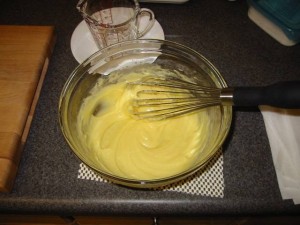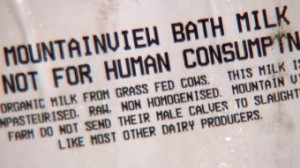Adults can choose to do many things, like drink unpasteurized milk or not get vaccinated, but those choices should not be inflicted on children.
 A growing number of parents in recent years, especially in the U.S., have skipped their children’s vaccines because of a discredited belief that vaccines are linked to autism.
A growing number of parents in recent years, especially in the U.S., have skipped their children’s vaccines because of a discredited belief that vaccines are linked to autism.
According to the U.S. Centers for Disease Control and Prevention, 84 people in 14 states were diagnosed with measles from Jan. 1 through Jan. 28. Most were infected either at Disneyland or by someone who went there.
Controlling a measles outbreak is expensive and time-consuming. Each case in a 2008 measles outbreak cost taxpayers more than $10,000 as public health staff traced each patient’s contacts, quarantined patients and administered vaccines.
Now apply the same language to those in Victoria who plan to fight for their right to drink unpasteurized milk today (it’s Saturday in Australia) despite one death and four serious illnesses in children under five-years-old, announced in Dec. and linked to consumption of raw milk.
Three of the four children – all under five — developed hemolytic uremic syndrome, usually associated with shiga-toxin producing E. coli, such as E. coli O157, and the other developed cryptosporidiosis.
The death was attributed to HUS. How many others developed milder forms of illness is unknown.
Rebecca Freer, who is planning the drink-in outside a state Minister’s office in Melbourne, said exactly what anti-vaxxers would say: “I think they’re in denial that there’s a large subculture of raw milk drinkers, who are well-informed, educated people.”
In May 1943, Edsel Bryant Ford, the son of auto magnate Henry Ford, died at the age of 49 in Detroit, of what some claimed was a broken heart.
 Biology, however, decreed that Ford died of undulant fever, apparently brought on by drinking unpasteurized milk from the Ford dairy herd, at the behest of his father’s mistaken belief that all things natural must be good.
Biology, however, decreed that Ford died of undulant fever, apparently brought on by drinking unpasteurized milk from the Ford dairy herd, at the behest of his father’s mistaken belief that all things natural must be good.
Shortly thereafter, my mother – then a child — developed undulate fever, which my grandfather, with no knowledge of microbiology, attributed to the dairy cows on his farm in Ontario, Canada.
He got rid of the cows and went into potatoes, and then asparagus.
In addition to the personal tragedies, every outbreak raises questions about risk and personal choice.
It’s true that choice is a good thing. People make risk-benefit decisions daily by smoking, drinking, driving, and especially in Brisbane, cycling.
But the 19th-century English utilitarian philosopher, John Stuart Mill, noted that absolute choice has limits, stating, “if it (in this case the consumption of raw unpasteurized milk) only directly affects the person undertaking the action, then society has no right to intervene, even if it feels the actor is harming himself.”
Excused from Mill’s libertarian principle are those people who are incapable of self-government — children.
Society generally regulates what is allowed for children – most parents aren’t having a scotch and a smoke with their 3-year-olds.
Celebrity chefs, would-be farmers and the wannabe fashionable can devoutly selectively spin scientific data. Does the Internet inform or merely solidify pre-existing beliefs?
Ten years ago, Ontario’s former chief medical health officer (that’s in Canada), said, “Some people feel that unpasteurized milk is either not bad for their health (they don’t believe the health risks) or they actually believe that it has healing properties because it’s all natural and untainted by government interference.”
Except poop happens, especially in a barn, and when it does people, usually kids, will get sick. That’s why drinking water is chlorinated and milk is pasteurized — one more example of how science can be used to enhance what nature provided.
Yes, lots of other foods make people sick, but in the case of milk, there is a solution to limit harm – pasteurization.
Society has a responsibility to the many — philosopher Mill also articulated how the needs of the many outweighed the needs of the one — to use knowledge to minimize harm.
The only thing lacking in pasteurized milk is the bacteria that make people, especially kids, seriously ill.
Adults, do whatever you think works to ensure a natural and healthy lifestyle, but please don’t impose your dietary regimes on those incapable of protecting themselves: your kids.
 The tragedy is one of seven cases of listeria reported in the last three weeks, although none are believed to be linked.
The tragedy is one of seven cases of listeria reported in the last three weeks, although none are believed to be linked.










